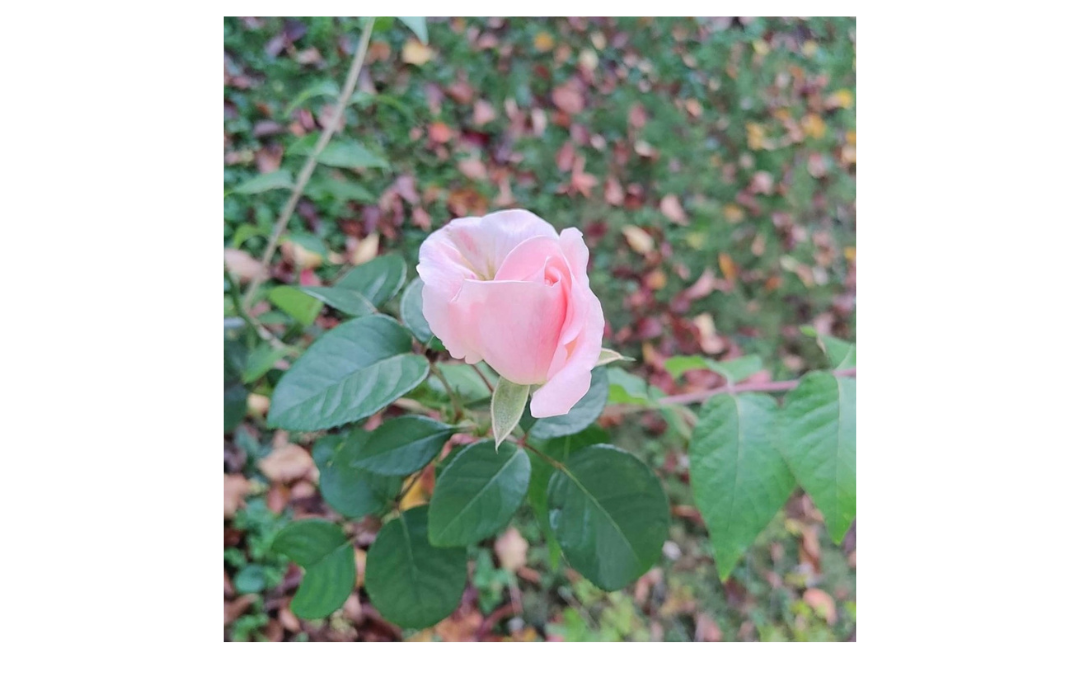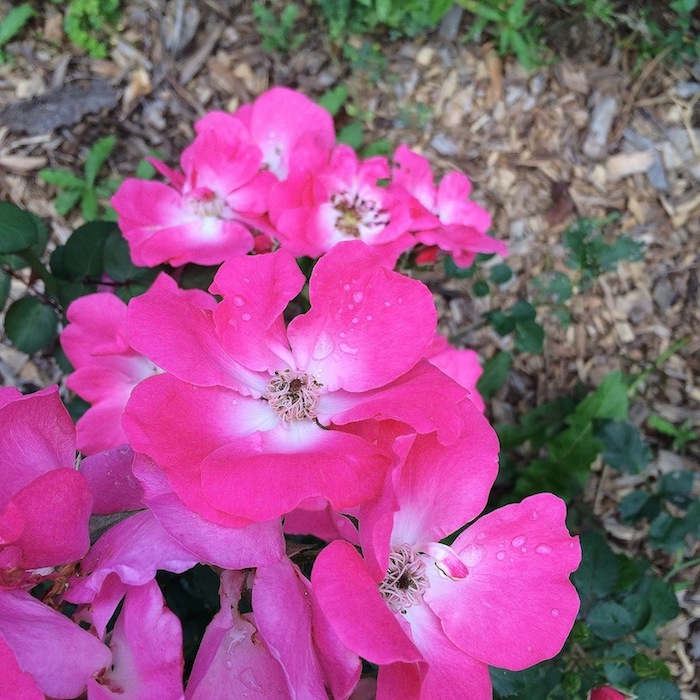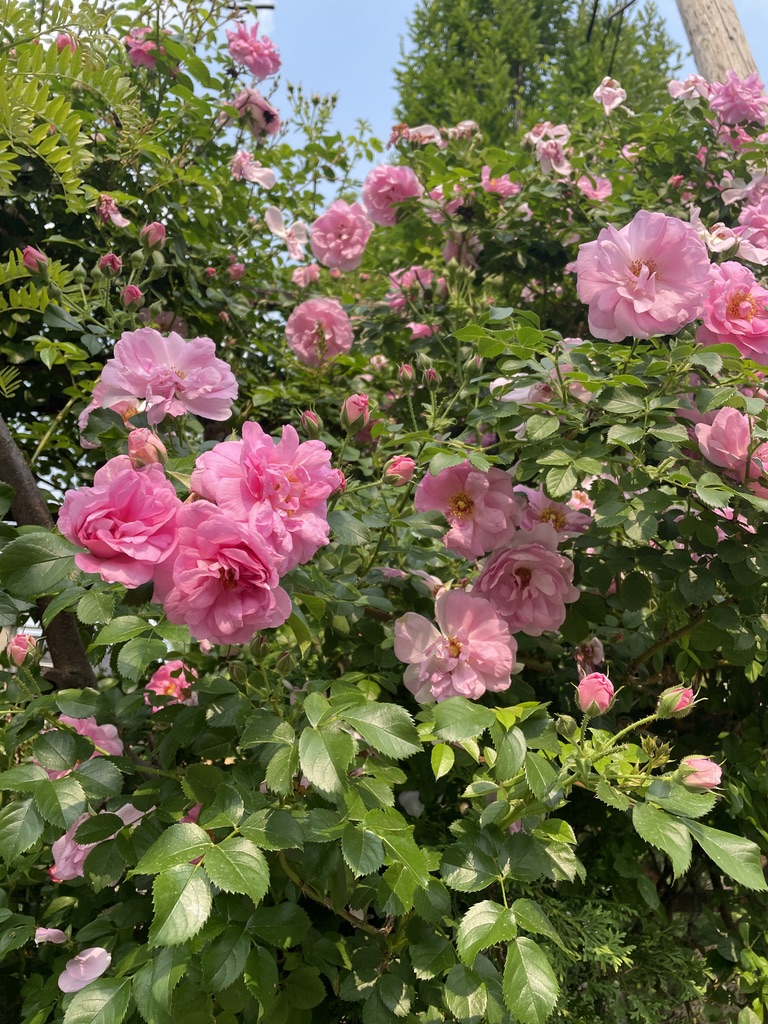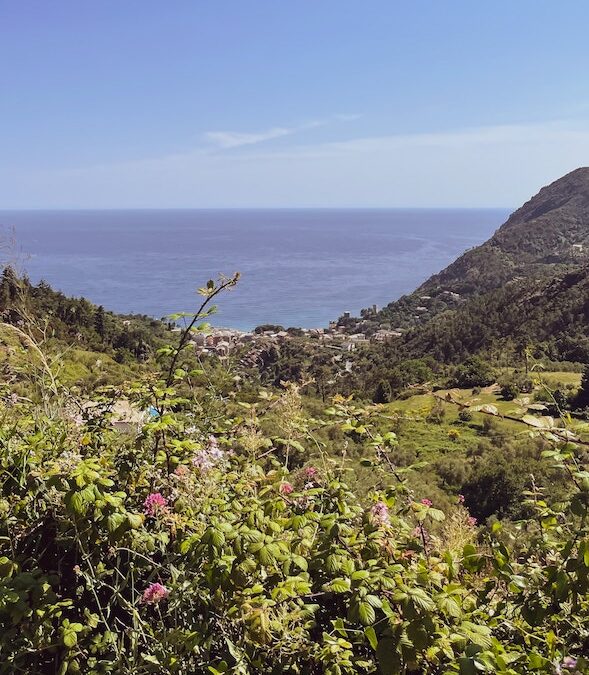Zen Buddhist monk Thich Nhat Hanh once said, “If I have to choose between peace and Buddhism, I choose peace.” This is called spiritual maturity. Thich Nhat Hanh’s statement is beautiful, meaningful and powerful, and he explained that it is very simple – for if you do not stand for peace, if you are anti-peace and for judgment and duality through both words and actions, then even if you call yourself a Buddhist, you are not a true Buddhist in heart. Buddhism has peace in it, so if you look at something that lacks that, then it isn’t Buddhism.
In that same way, Christianity has love in it, has peace in it, has compassion in it, has service to others in it, has non-judgment in it, has acceptance for those even if you cannot understand them nor agree with them – and if you are looking at something or someone that identifies with being Christian but lacks those basic human values and virtues, then it isn’t Christianity. It is profoundly heartbreaking that we’ve become so narrow minded as human beings. It is profoundly heartbreaking that we live in world of so much separation and division, forgetting our humanness and humanity.
Throughout his life, Thich Nhat Hanh often spoke of the similarities between Buddhism and Christianity, in that both nurtured the values of community and sharing meals. Meeting with spiritual leaders from around the world, speaking and connecting to priests, he urged all people to engage in inter-spiritual dialogues – as he believed that this would remind us all of the essence of the faiths, and connect us to our humanity – because we need to remember the roots, and these roots go beyond the words. When we focus too much on extreme doctrine or conservatism, we miss the valuable pearls of wisdoms, because absolutism sinks us in the water like stones. He urged people to explore deeper, to know more deeply the mystical traditions, to be contemplative, and remain in open hearts.
When we lose touch with the deepest essence of something, we lose touch with some of its most valuable jewels, which is what I believe has happened in some churches of modern Christianity and other religions as well – the essence has been forgotten, so the jewels are not seen. If you look at every religion in the world, you’d notice how many divisions and denominations they have. And our whole world still is so divided whether on religion, theology, ideas, politics, cultures … what has that division led us to? Have we learned nothing? If we cannot truly feel compassion for another during their hardship because we do not agree with their government policies, religions or culture, it is a clear sign that propaganda is working on us.

Sit, Listen and Learn
There are so many divisions in our world today, and it really is sad to see how humanity separates itself from itself, losing the pathway to each other’s hearts. In the past few months, I was asked to work on a project diving into the theological divisions within the Christian tradition, and offering my insights on unity; and I listened and I learned many things from theologians mainly from Catholism and Orthodoxy. And after listening to all I could, I gently went back to the roots and the essence of the faith and its tradition, to its purest and deepest expression, which is the monastic life. Because simplicity gives us truth.
Surely, there is a lot of work to be done in the realm of unity – not only in terms of Christianity, but unity for us as humanity based on our human values – I mean, look at where our world is today. But I don’t think that we need to wait for theologians to agree on doctrines, for politicians to agree on policies, for governments to magically wake up and understand they need to contribute to the betterment of humanity – because to be honest, that magical unity may never happen, at least not on a policy or theological level. But we can still be working together in the union that faith is, that humanity is. And there is so much to learn. And it’s a privilege to be able to learn, and to keep ourselves humble enough to learn with openness of minds.
We can just sit, listen and learn.
We all have our own opinions, but they may not be perfectly formed nor ever will be because we are only human, so there is always something new to learn and find beauty in. Starting my research, I had my own opinions on Catholicism for example, but through the dialogues with others I learned so much. Some of it I still don’t agree with, but then there were other things that deepened my understanding and inspired a new sense of compassion. Simultaneously, I would listen to some of the theologies of one versus the other, and I’d feel so sad because it is so clear how divided some of the denominations were, and the essence of the faith was getting lost somewhere between the words and texts. The unity was lost, because it was forgotten.
If we truly want to foster and nurture unity, I think it looks like reaching across the lines that divide us.
During my research it looked like saying, “Hi, my name is Lubomira. This is what I believe, but I want to listen and learn from you.” And this is what I do, essentially, in my work with the Art of Love. I try to reach across the lines that divide us. I try to reach and learn. I try to see the thread that connects us. I try to learn not just from words in text and books, but from the real life every day lived-out expressions.
And in this case, if we truly want to remember or learn what the essence of Christianity is, we need to go back to its deepest and purest expression – which is the monastic life, because simplicity gives us truth. So today, please join me as I walk you through the beautiful insights I gathered from various monks and monasteries, including the Saint Elisabeth Convent, a Christian Orthodox monastery in Minsk, Belarus – as there is so much wisdom to be learned from these deeply enriching human and spiritual experiences, and we can all certainly apply aspects of them in our every day life, no matter where we are in the world. This is about humanity and humanness.
Along the Way, Little Pearls of Wisdom
The Room for Doubt: One of the first things that we learn is that there is a room for doubt in the walk of faith, and in the walk of life itself. That’s not something to be ashamed of. The common view is that monks and nuns are people who are perhaps wounded and weak and are looking to escape the world – and that’s far from the truth. These are very strong people, they know who they are, and they have strong spiritual cores. Monastic life is far from easy, and it is not for the faint of heart, because you would not even be able to spend a week in a monastery if you didn’t have that courage of soul.
So one of the monks from Ireland shared with me how even he, after almost twenty years of being a monk, sometimes experiences doubt and unhappiness. And it is okay to question things, to ask questions, as this is only whispering you towards contemplation, an opportunity for a deepening, or calling you towards exploring something that is meaningful or needed for you at this time. It may sometimes even be an initiation for discernment, because perhaps you are just faced with something, perhaps actions from another, that you don’t feel is right and true of heart. But just as we can sometimes have doubt within the walk of a relationship and marriage and our personal lives, we don’t just quit – we sit, listen and learn to what that voice is; we explore it, we ask questions why we feel this way, and seek to restrengthen our spiritual core, and connect to the essence of love, to our heart and our trust and faith.
Life is not about being perfect, no one is. And faith too doesn’t mean you’ll always have a perfect path ahead, for sometimes doubts will come, and in those moments, take solace in the room of doubt, and contemplate – have some quiet time and seek to understand more deeply.
Surrender and treasure the humility remembering that as human beings, conditioned to human understanding and with limited minds, we will never know it all. And we were never meant to know it all anyway. But also remember – that when God speaks to you, you will hear him. And when it is your soul’s calling – you will know it; your mind may not, but your very body will feel it, will know it.
Work with the Hands: A monk once told said, “You’re only a monk when you work with your hands.” The essence of Christianity and of monastic life is taking care of others, taking care of chores and tasks, because we nurture humility and dignity when we take care of others, we nurture our humanness, and nurture community and service.
Guides for Discernment: Often times people go to monks and priests for spiritual guidance. And something to remember is that they are not there to recruit you, nor tell you what to do – they are there to help you discern what you truly want, what feels true for you, so that you can follow that calling. This is what spiritual guidance is, and this is the essence of the faith – to connect you to your own heart and soul’s calling.
I’ll tell you a story: A woman once went to her priest and asked him what should she do, as she is in love with a man of a different denomination, and because his parents were strict Catholic, she could only marry him if she converts. She didn’t want to betray her roots and her priest, but that was the condition imposed on her and she suffered greatly. So the priest told her that Christianity is not there to make you unhappy. Christianity is not an obstacle, not a prohibition, it is about love, and you should not betray your heart and act of love. But as a recommendation – she should also not betray her values and virtues. He advised her to continue to practice them, for it is not necessarily in the identity we give ourselves that faith is, but rather it is through the purity of our heart and how our actions align to the faith and to compassion.
He advised her to continue to seek the virtues as guidance in her life, and that she doesn’t have to be called a Christian – she only needs to be a true Christian within herself – to practice the love and that is good enough for the priest, so she shouldn’t feel she is betraying him.
After this conversation, she felt such joy and peace in her heart that she was allowed to marry her partner. But she could not sleep that night. She kept thinking that it isn’t right for his family, or any human being, to ask someone to give up on their faith as a condition to love – because that’s not what love truly is. So she went back to the priest and told him that a religion that is so restricting that it holds no tolerance for her individual faith nor does it hold understanding and compassion, does not feel like the right path forward, and she doesn’t want to be converted to it. She wanted to marry her person, but she wanted it to be founded on true love and understanding, and acceptance of their inner worlds and needs. When she shared this with her partner, he didn’t agree and stayed with the conditions of his family.
The priest shared how he felt sad about it, because he only wanted to help her and give her peace with whom she loved rather than cause them separation – but he also realized that essentially she chose what gave her peace within, so that gave him peace as well.
I realize that there may be Christian priests and pastors who may not hold these views, nor ever even say to her what this priest said to her, but I personally thought that this was a very compassionate and humane response, one that essentially guided her to make her own decision and discern what she feels at peace with, what is her own truth. What this story shows us, in my personal opinion, is spiritual maturity. This priest has the spiritual maturity to understand where the true faith is, he has a strong spiritual core, is secure and mature in his faith, values and who he is and his intentions, and thus, he has the ability to discern. This story also reminded me of the many times when Thich Nhat Hanh had shared similar stories too – and perhaps this is why I’ve always admired him – because he truly held the purity and depth of true spiritual wisdom.
Many people in our world suffer from these religious divisions. Thich Nhat Hanh has spoken so many times on people suffering and approaching him when they are required to convert from Buddhism to Christianity etc., because of someone they loved, or even just to be hired for certain jobs in the world. So many innocent people are caught in the middle between these theological battles, or geo-political situations, or racial or cultural etc. And he always adviced people that religion is not there to make you unhappy and suffer, what matters isn’t the identity, whether you call Buddhist or Catholic etc. – it is about your heart and virtues; and as he always said, “You don’t have to be called a Buddhist; you only have to be a true Buddhist within yourself.”
I truly hope that we can stay true to love and the essence of faith and human values. Each partner can learn to respect and try to understand the faith and tradition of the other. And instead of having one root – why not have two? Why not practice the beauty of two religions and traditions? It’s too narrow minded to keep our selves rigid in only one way when there are so many beautiful nuances to explore in our world. Spiritual traditions are like spiritual fruits, and you have the right to enjoy them. It is possible to build a family based on two traditions, where you can blend them beautifully, and take the best of both, and live happily with that. Love will never ask you to abandon your God, to turn your back on your roots, nor abandon what feels true within the depths of you. And yet it is also about understanding the essence of it – it is about embracing the openness of heart, and those who may not be like you, rather than abandoning them or being hurtful to them.
We’ve become so narrow minded as human beings. God didn’t leave us with strict rules, laws or prohibitions, but with the freedom to explore and be creative, to dive deeper into things, explore the nuances of our humanness, and learn from the differences thereby enriching our human and spiritual experience – while also staying true to our heart and with compassion and integrity in action. So while some strict conservatists will say you should be interested in mediation if you a true Christian, nor explore anything else in life, well, I don’t agree with this – because it is about your heart and who you truly are within: purity of heart, clarity of mind and sincerity in action.
It says in the Bible that all is pure in its nature, and if we are pure, it will remain pure; but if we aren’t, it will not. If you are not of pure heart and intentions, nothing you touch nor speak nor engage with will be pure. If you are not of pure heart, it doesn’t matter how much you go to church, pray, confess, cite the texts – for the spiritually impure can’t perceive the spiritually pure; they think they can but they can’t.
I don’t understand why there is so much division – would Jesus have turned away from someone who wasn’t of his faith? No. He never turned away from anyone. Because his teachings were based upon love, humanity, non-judgment and compassion. In the Bible it even gives the story of how Jesus came across a woman of a different faith, a Samaritan, when he was by the well; and uncharacteristically for his time and people during those time, he treated her with deep kindness and respect, he treated her as an equal.
When interacting with people of different backgrounds or faiths, Jesus didn’t try to convince them to believe anything new, didn’t try to change any behaviour, and didn’t attempt to recruit anyone to join his group. He simply loved them, praised the good in them, and only answered the questions they were actually asking. This is what Christianity is. So to be honest, I have absolutely no idea how from that, it became something about judgment, recruitments, prohibitions and doctrine based rules. It is profoundly heartbreaking how many people have negative experiences within the Christian tradition, because to me personally, it’s always been a faith and a tradition based on love, peace and acceptance.
Pay attention to the phrase “uncharacteristically for his time and people”. Jesus Christ treated them in a way that wasn’t the way others were accustomed to. He showed others the importance of openness of heart and mind, of love and compassion, of kindness and respect, and of acceptance – so that we can move beyond our judgments and biases, and be more spiritually mature. It’s about expansion. But what happens today? Restriction. Perhaps religion, or at least the more fanatical ones or views, need to evolve just as humanity evolves.
Because love too evolves, or rather it unveils more of itself; because learning to love requires more of us now, it is more difficult now. It is difficult to love when it’s not convenient, when it’s uncomfortable, when we need to practice kindness and respect for another, when we need to practice humility when faced with something or someone who challenges our own narratives or expectations. Yes, learning to love is difficult. Because human beings are complex, because human nature is complex. It is easier to love scripture and sculptures and images and buildings. But it was difficult to love back then also. So perhaps love is a revolutionary act – that essentially frees our soul from the imprisonment that we’ve grown comfortable in.
I believe that if one truly carries Christ within their heart, they need to be humble enough and open enough to love, truly love; going beyond our biases, judgments, conditions and compulsions, and having the courage of soul and spirit to love with an open heart, or at the very least, to reach beyond the lines that divide us, and to sit, listen and learn.
I don’t believe we should ever force others, including children, to adopt our views, whether by authority, power, control, money, propaganda, threat, or manipulation. However, through compassion dialogue, may we help others to renounce fanaticism and narrowness. Absolutism sinks us in the water like stones, and that’s not good for anyone. Spiritual immaturity and ignorance lead to absolutism; and narrow-mindedness is the highway on which ignorance loves to drive.
I envision for a future where we can remove the barriers between different spiritual traditions; where we can build a bridge to each other’s hearts; where we can enjoy and learn from all other traditions – because each one has its own beauty. If you find Christianity helpful, healing and joyful, continue practising it; if you find Buddhism helpful, healing and joyful, continue practising it; but also think of all other people who have come from the same tradition as you, and yet have not encountered the same practice nor had the same experience. And perhaps you might find some older practices more helpful and healing for you, that you align to in a deeper way; or you may share your own, and perhaps someone else might be inspired. What this all does is that it essentially allows your heart to open and embrace the people who do not seem to be open and understanding enough when they try to enforce or transmit their own opinions, values or traditions onto the new generations of people.

In Service to Others
To understand the essence of Christianity I believe we need to shift our eyes towards the purest, deepest, most beautiful and most meaningful lived-out expressions of the faith and love itself – and that’s seen through the monastic life.
So let me now take you to the beautiful Saint Elisabeth Christian Orthodox Monastery in Minsk, Belarus, where we see some of the many selfless and impactful social work and creative projects by the nuns – as well as what the nuns themselves have realized through their involvement with the community. Some monasteries remain a bit more closed, and there are others that are more open – in the sense that they do a lot of social work, and hold projects and centers for the community.
The Art Studio: There is a belief that whatever natural talents and gifts a monk has been given by God, they are to be given back to the people for their benefit, to be of service to others. As we mentioned in the beginning, a monk is only a monk when they work with their hands – and that means creativity also.
So in this monastery, the nuns have set up a little art studio – a space for children and youth, many of whom are disabled, to help them discover their creative talents and gifts, while helping them build their skills. The intention is to help them feel supported in what they enjoy and love to do; to encourage the children and youth to share their ideas openly, and then the nuns and monks help them realize their ideas and talents, and discover the artist within.
The idea for the center started with a simple question: What are most people missing today? Joy. Joy is increasingly in short supply in our world, so the nunds decided to create the art studio offering people a chance to find joy, to make sense of what happens to them in their life and where they are going, and to learn to understand themselves in a better way. The art studio has section for adults also – and the monastery uses the donations they have to pay a small amount to them, so that they too can have the ability to spend time there, learn and be trained, and build their skills.
The nuns and monks and priests there believe that God didn’t leave us with a collection of rules or prohibitions, but rather he endowed us with the ability to be creative and this is an immense gift.
They also created a garden with flowers blooming, and have a small farm with animals, and they share how beautiful it is to see the children and everyone else interact with the flowers and with the animals – tend to them with care, gentleness and sincerity.
Men’s Rehab Center: Upon the grounds of the monastery there is a also a farmstead center for disadvantaged men, which resides over 200 men at present. It is for those who have had and still experience troubles and need help – including veterans, ex prisoners, ex addicts or alcoholics, jobless, disabled, or in any other way feeling outcast from society and have nowhere else to go. Using donations, the nuns seek to provide them with food, clothing and accommodation – so if you have the ability to help and donate, please do so here, and support the rest of their projects, those for sheltering women and children, by visiting their website here.
The intention of the center, aside from providing them shelter, clothing and basic needs for food, is to give them a space where they can feel some stability, belonging, and acceptance in their life; and while they are not required nor even asked to work while residing there, they have available jobs for them if they wish in the farmstead. The availability for work at the property allows them to regain a sense of purpose, their human dignity, worth, self esteem and just feel purposeful overall – that they matter, and that their work contributes to others and is needed.
The nuns recognize the talents each man may have and encourage them and help them – and there is one really sweet story that I’ll share. The nun in charge of the center was walking through the farm and introduced a man, and kept saying “Oh, he has a talent for prayer! Oh yes indeed, and every time I have trouble with the cows, I ask him to come and pray with me, and the cows feel better again!” The man was an ex veteran and disabled, and he was standing beside her, and shyly smiled. I know it may sound silly and childlike, but this is meaningful.
Many of the men have forgotten how to be a part of something. They have been accustomed to isolation, to living as outcasts, cut off from society and even their families. The nun who was in charge of the center shared how she was raised in a very loving and close knit family; and even though they certainly did not ever imagine her becoming a nun, they accepted her decision with love, and supported her in her choice even when it was completely different from their personal way of life. The point is that she came from love and support – she knows what it means to be loved, and it is her gift I believe to now be sharing this with others also. Out of her knowing what a family feels like, she was able to propose the idea for the center and truly build and create a sense of belonging and community. She created a space for these men, with so much love and compassion, so that they feel stability, acceptance and belonging.
Many years ago I worked on a project researching prison reform through the lens of education; and coming across some prisoners I learned how much it mattered to them to feel purposeful and needed – that what has basically led them astray in life was the lack of resources, and wanting to feel a part of something. At the core of each human being is the need to belong, and to be the best they could be – but to also be recognized for their existence, and not have people just negate their worth and birth. A lot of people go into crime because they are alone, unsupported, lack love, and are instead tempted by these underground groups to feel appreciated for work they would be doing. Especially the young ones, one of who shared that he never felt supported and appreciated by his family, and he just wanted to feel his “work” mattered.
I understand this may be hard to read, and that’s no excuse to do harm, nor am I justifying wrong actions – but this is for us to understand the root of the problems in our world. The main one being education – or rather, the lack of it. So in one of the prisons that are involved with having bigger libraries and education programs available to the prisoners, with teachers and classes available to them also, there was a man sharing how he is now learning so much, taking classes and passing his high school certificate, and he is also connecting to his faith and taking psychology classes also to understand himself more, and he has plans to get a job and hopefully even go to college when he serves his sentence, because he wants his kids to be proud of him. Again – all a person wants sometimes is to feel purposeful.
It is human nature that we can be a bit proud at times, so for some of the men in the monastery’s center, this was a bit of a struggle – and as such, it was helpful for them to get their hands working especially on the farmlands. This served them to stay away from alcohol or drugs, but it was also an opportunity for them to learn to humble themselves before God’s limitless love. The essence of the faith, and I believe of most faiths and religions, is to be of service to others.
In fact, it is proven that this makes a person feel more joy in their life and contributed to their health and wellbeing. When someone feels purposeless and lost, or even depressed or too anxious or worried, it can be very soothing and healing to shift their eyes towards helping another, to do charity or volunteering, or just help someone in your life, help with the chores, help a stranger, open the door for the elderly, help a mother with her stroller and her baby, cook for your loved ones, do the dishes, be a listening ear and loving holding hand to your family.
The most essential thing in the monastery is that everyone who lives on the grounds feels like they belong and that they are God’s children, no matter what their past has been.
It was really curious for me to learn that the nun in charge of the men’s center was a bit taken aback initially from the men’s appearances. She had great ideas for the center, of pure intentions, but when it came to reality, it was a bit difficult for her in the beginning. She shared very honestly how she’s always loved beauty and aesthetics, and even within the simplicity that monastic life is, she always wanted to make things beautiful through keeping them clean; and yet the men were far from clean, or beautiful. She shared very honestly how it was a bit uncomfortable to look at them because of the appearances, and their a bit arrogant and unpolished behaviours at times, and yet she learned to look deeper into their eyes, and see them for who they truly were in their inner worlds. So her understanding of beauty became, as she calls it, “not aesthetics, but ethics now”. I found this beautiful to share with you all, because it shows you how monks and nuns are human too, and they learn things too along the way.
As she says, “Sometimes the Lord gives us a job to recognize our own talents; because he endows us with talents, he also then gives us the chance to disclose them and serve others.” She was blessed with her family and her open mindedness to then create a space for belonging and support for others; she was blessed with the creativity to imagine it and propose it; she was blessed with the gift of words and stories so that she can speak more clarity and love to them in ways they can perceive and receive; and through her job of working with the men, she also evolved within to realize the beauty of values and ethics, and then through that, perhaps some of the men can realize to see beyond their own appearance and disabilities, and have more confidence in their worth as they have values of heart and integrity of work.
The Children’s School: And the last projects of theirs that I’ll share is their Sunday school for children, which is actually common for most churches to have, but what makes this special is that the monk didn’t want just another Sunday school – he wanted a space where children can come freely once a week, do some prayer, read some stories, learn some virtues, and have open communication where they can ask any questions they have – as well as share their own ideas and thoughts and experiences throughout their week.
The focus of the school is joy, freedom and inspiration – and to nurture a space within them, which they can find stability and trust in, and foster greater confidence so that it is of benefit to them later on in life. When our faith is strong, we are strong also – because we are rooted in our spiritual core, and no matter what happens it will hold us in clarity of mind, purity of heart and sincerity in action. Our inner world is important. And the school they’ve built isn’t merely about self development, it is about the willingness to learn, transform and grow.
One of the priests shared how he’s always been very sensitive and insecure; one word would make him reflect and rethink his actions. But his many years of service have taught him to persevere, to be tenacious, and to always try to do the right thing. And when things go bad, in his married or personal life or in his life at the church, he trusted that God would help him, even without his knowledge nor asking for it. This trust has helped him many times, and continues to help him, persevere in his obstacles and challenges.
Faith is neither a theory nor blueprint, and it is not something of logic to be proven in tangible ways. A touch of God’s grace reveals an abundance of kindness in a person – and that’s because God touches the heart. And it is our heart that truly matters.

Learning to Love
In monastic life, the most difficult part is to love one another. You see, people go into these sacred places and see these monks and nuns with their peaceful aura, and there is so much kindness and love in their interactions; and people think, “Wow, it is so easy for you to love!” But what they don’t realize is the long path it took to get to here. They don’t know the hard work it takes to love, because love is a kingdom for the brave, not for the faint hearted.
It is easy to love from afar. It is easy to love statues and images and buildings such as churches or temples, because perhaps they don’t move, they stay perfect, so they can’t hurt us. But human beings … well, we’re hard to love; we change, we are non-sensical, we have flaws and imperfections, and unfortunately, we hurt and disappoint one another. People sometimes are afraid to love a person, because feelings are not stable as rock, and they fear the pain they’d feel after the other’s feelings change.
True love can only begin after the disillusionment. In many ways, love is an acceptance of our humanness, and willingness to still love.
And for the monks – learning to love is their greatest lesson, and most difficult too; because it isn’t about the scriptures, it is about the living together, and having that lived-out expression of the love that the faith is. In monastic life, you spend your days in a cell, day in and day out, for years and years, bearing the burdens of another. No, you can’t go for a walk when you are annoyed; you can’t put on your headphones or watch a movie in the other room; you can’t quit on each other and walk out; you can’t only show up when it’s convenient for you do so; you can’t just do whatever only you want to without tolerance or understanding of the interconnection and interdependence of all others around you.
Every person has their good and not so great sides, but one must accept, understand, have compassion, and finally, learn to love the full person, with a kindness and patience of rhythm. And really, truly, that’s our greatest purpose in this life I believe: to learn to love.
To treasure the humility that we don’t know it all, and that we’ll never know it all. To reach across the lines that separate us. To say: tell me, how do you feel, what do you need, what can I do to make your day better. And to sit, listen and learn.
You can learn about Saint Elisabeth through their official website here.
For personal readings with me, you are welcome to browse through my Offerings.

For more of my writings, browse through my Art of Love.
If you wish to support me and my work, you may do so by sharing it or donate here. For personal readings with me, you may visit my Offerings.
Your support means so much to me! Thank you wholeheartedly!
Cover photo by Tina Xinia on Unsplash.
The in-text photography of the wild roses are my own personal photos and of our gardens.




